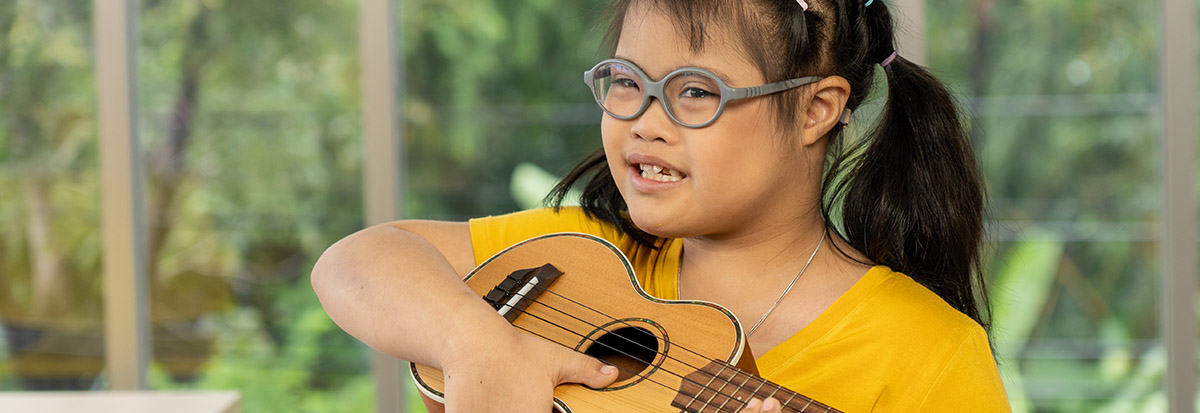Health and wellbeing
Autistic people have a dramatically reduced life expectancy when compared to the general population, are more likely to have chronic health conditions, and report lower quality healthcare.Content warning: This page discusses suicide prevention
Nowhere is the need in autism more starkly conveyed than in statistics showing dramatic reductions in autistic people’s life expectancy. Autistic adults die more than 16 years younger than non-autistic adults and this gap increases to 30 years for autistic people who also have a learning disability. The two main causes of death are epilepsy and suicide. These early deaths are largely avoidable – they are the outcome of systemic failures. Diagnosis is slow, often taking two to three years or even longer. Interventions, support and care are poorly-evidenced, under-funded and inconsistently delivered, and many autistic people receive no support at all after their diagnosis.
All of this has contributed to a mental health crisis in our autistic community – many autistic people suffer severe anxiety and depression with 8 in 10 reporting mental health problems. This is a crisis playing out in families, homes, schools, the NHS and hospitals, social care and residential settings all over the country, and the consequences are devastating.
Suicide prevention is our first mental health priority
Our suicide prevention survey has now closed.
Join our Community Advisory Panel to be the first to hear about upcoming activity.
Research suggests that autistic people are at an increased risk of both suicidal thoughts and suicide attempts compared to non-autistic people. Two thirds of autistic people responding to surveys have considered suicide, with one third having actually planned or attempted to take their own life. This is nine times the rate than in the general UK population, accounting for approximately 150,000 autistic adults.
To address this, we have established a Suicide Prevention project team, bringing together experts from a number of research institutes combining relevant experience in the field of autism, suicidality and suicide prevention. Our belief is that all suicides are preventable but there isn’t enough science to fully understand the link between autism, mental health and suicide. We will bring the autism community together with experts, policy thinkers and Government to prioritise measures that will prevent suicides and save lives quickly and sustainably.
Our immediate actions include:
- Commissioning a large autism and suicide research programme and autism community dialogue around suicide prevention
- Identifying, creating and launching tools and interventions with evidence to support their impact in order to change the support landscape for autistic people by 2026
- Building a UK coalition of autism groups, academics, politicians and activists to campaign for system change across the NHS, education and social care
Improving lives via music therapy for autistic children
We are also committed to reducing avoidable hardship in the lives of autistic people. Much of our work will be focused on tackling inequality, exclusion, isolation and maltreatment, but we will also explore opportunities to improve life via therapies. Improvisational music therapy involves the therapist and child spontaneously creating music together using singing, playing, and movement, with the therapist following the child’s interests and focus of attention. It has the potential to improve the lives of autistic people, especially in relation to wellbeing and improved day-to-day living skills.
One study found more reports of joy and shared emotional experiences when autistic children were engaged in improvisational music therapy when compared to play sessions.
We are providing funding of one million pounds for a study by the Autism Research Centre at the University of Cambridge. The researchers will test the effectiveness of improvisational music therapy by conducting a randomised controlled trial (RCT) with 200 UK-based autistic children aged 7 to 11 years old. The main outcome being tested is improvement in social communication. Should the study find that improvisational music therapy is effective and acceptable to autistic people, we will work with providers to make it more widely available.

Addressing delays in autism diagnosis
Waiting lists for an autism diagnosis are often at least two years, sometimes much longer. The Autism Centre of Excellence at Cambridge is working in partnership with researchers and healthcare organisations to explore a faster diagnostic process, which means getting access to the right support sooner.
If the new process is shown to be effective, we will work with autistic people and partners to promote its global implementation, so that tens of thousands of autistic people can benefit from a faster diagnosis and earlier access to support.
“Had it not been for my research into autism to help my grandson, I may never have got the answers to all those ‘why’ questions about myself. When I was finally diagnosed at the age of 61 it was a ‘Eureka’ moment. It has already made a huge difference to me and my family; I now know how to manage my life and can be honest with people instead of making excuses to avoid certain things which cause me problems.”
Next: Education
The Autism Centre of Excellence wants to ensure every autistic child can fulfil their potential in an educational setting that is right for them. Find out what we’re doing about it.
About Us
The Autism Centre of Excellence at Cambridge (ACE) is a science-led campaigning charity working closely with Cambridge University’s Autism Research Centre. Our aim is to improve access to high quality support and remove barriers and stigma for autistic people.
A partner with
ACE is charity registered in England and Wales, Reg. No: 1191599. Read our Privacy Statement.

